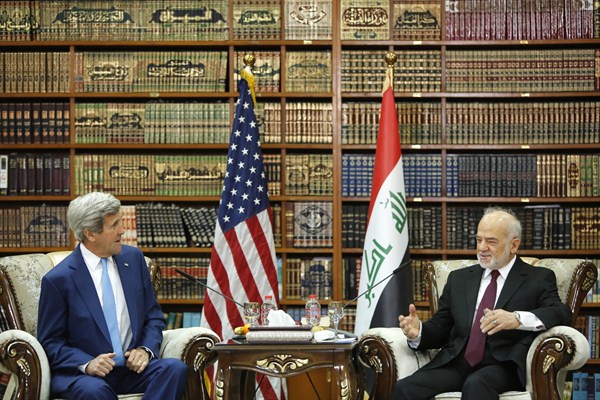In the past five days, both U.S. Secretary of State John Kerry and Secretary of Defense Ashton Carter have visited Iraq. The visits demonstrate the urgency with which Washington views the political crisis in Baghdad, against the backdrop of the Iraqi military’s stalled campaign against the so-called Islamic State.
They also underscore how the Obama administration’s early plans to scale back America’s engagement in Iraq have come full circle: More troops and more political attention are now required. There’s no easy path to stability for Iraq, but some decentralization of power might help.
The uptick in policy attention to Iraq is due to deepening concerns about the Iraqi military’s capacity to do its part in defeating the Islamic State and, more recently, the soap opera in the halls of the Iraqi parliament, where political forces have even come to blows over Prime Minister Haider al-Abadi’s plans to reshuffle his Cabinet. Kerry visited Friday, and Carter arrived Monday for urgent talks with Iraqi political and military leaders.

